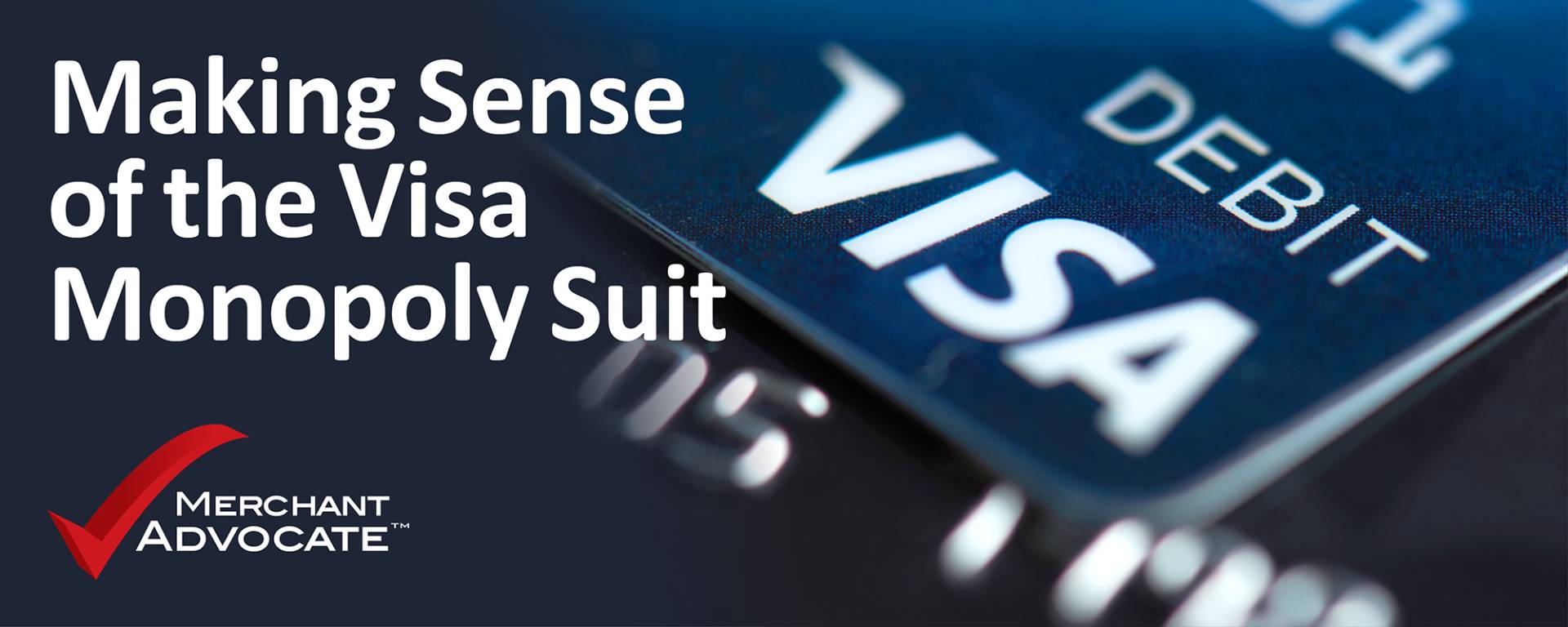Blog: Making sense of the Visa monopoly suit
December 09, 2024

The inner workings of the processing industry are not usually top of mind for the average consumer. But the difference between using your debit card or a credit card – potential for rewards, payment timing — should be very familiar. But where do these differences stem from and what does that have to do with the DOJ’s allegations against Visa?
Fees are typically lower for debit card transactions than for credit cards because they come with less risk — for banks with assets of $10 billion or more to 0.05% + $0.21 — whereas banks with less than $10 billion in assets do not have their fees capped. Debit interchange fees are higher for online vs. in-person transactions.
With credit cards, fees are generally higher because they come with an elevated fraud risk, plus a steep interchange rate. Unlike debit cards, which fall under the Durbin Amendment, the credit card side of processing is largely unregulated. This caused the card brands to create two fees: one for regulated card-issuing banks and another for unregulated card-issuing banks.
“Debit runs on different ‘rails’ in the payment world,” explains Merchant Advocate CEO, Eric Cohen. “Visa owns multiple debit networks including Visanet and Interlink. That adds up to 60% of the debit transactions [in America].” Their large market share and subsequent behavior in the space is what the Department of Justice is investigating, alleging the card brand is engaging in anticompetitive practices that stifle competition, inflate fees and harm consumers and merchants. Though the DOJ aims to give businesses and consumers relief by reducing fees through the investigation, Cohen explains that these arguments are not particularly solvent.
Market Share
Visa’s share of the U.S. debit market outpaces its nearest competitor, Mastercard, which holds 25%. The DOJ alleges this imbalance allows Visa to charge over $7 billion in fees annually, much of which they attribute to monopolistic practices. The suit claims that these fees are passed on to consumers through higher prices and reduced service quality.
Anticompetitive Agreements
The DOJ alleges Visa is using exclusionary agreements with merchants, banks, and financial institutions to ensure transactions are routed through its network. Such agreements often penalize those who consider switching to competitors, making it financially unviable for them to do so if they did not meet their quotas. “The Department of Justice is coming down and saying, ‘You’re not really giving someone else a choice if you’re using your power through your size to force someone’s hand,” Cohen notes.
True Effect of Targeting Competition
The DOJ alleges Visa sought to neutralize emerging competition from financial technology companies like PayPal and Apple Pay. By diminishing competition, Visa allegedly hindered innovation in the debit payments ecosystem. Though the DOJ argues that such practices harm small businesses and consumers, especially those who rely heavily on debit cards for payments, Cohen disagrees: “If you run a convenience store or a big-box store, sure,” he says. “But most small or medium-sized businesses… I have a hard time believing that the increased debit fees—which are pennies—are a granular cost.”
Violation of Antitrust Laws
The DOJ alleges Visa’s conduct violates Sections 1 and 2 of the Sherman Act, which prohibits monopolistic practices and anticompetitive agreements. Their lawsuit aims to restore competition to the debit market. Visa has denied the allegations, describing the lawsuit as “meritless” and stating that it operates in a competitive market with multiple payment options.
What It Means for The Future
Bottom line, says Cohen, “The DOJ is trying to allow more competition to come in, and that competition is coming in different forms. I believe we’ll see some companies allow for peer-to-peer payments, which allow for direct fund transactions between companies.” He predicts the lawsuit will take years to resolve, similar to other class-action lawsuits brought against the two major brands.
“Ultimately, the question is — does it get to the businesses?” Cohen asks. “Are the processors going to continue to mark up fees and keep some of these reductions? Possibly. Big-box stores, supermarkets, convenient stores … maybe they’ll get some relief. Do I think that will be passed on to the consumer? No.”
Regardless of what happens with the Visa lawsuit, merchants should not expect a cure-all for the issues permeating the industry. The onus is on business owners and card-processing experts to work together to find solutions to reduce processing fees, strengthen the customer experience, and create a partnership that works for both sides.
Merchant Advocate is an independent auditing firm that has saved its clients more than $300 million in excess processing fees. To find out more, head to merchantadvocate.com/ficpa.

